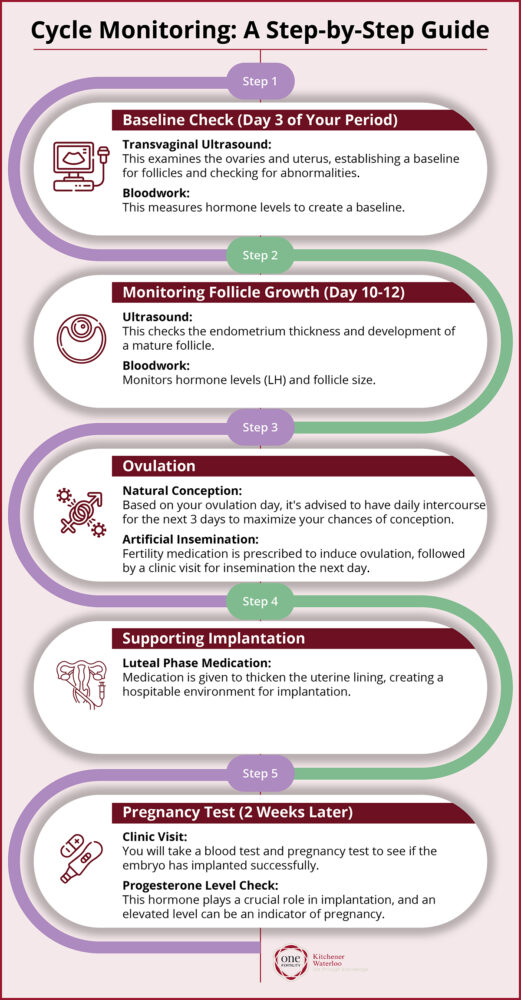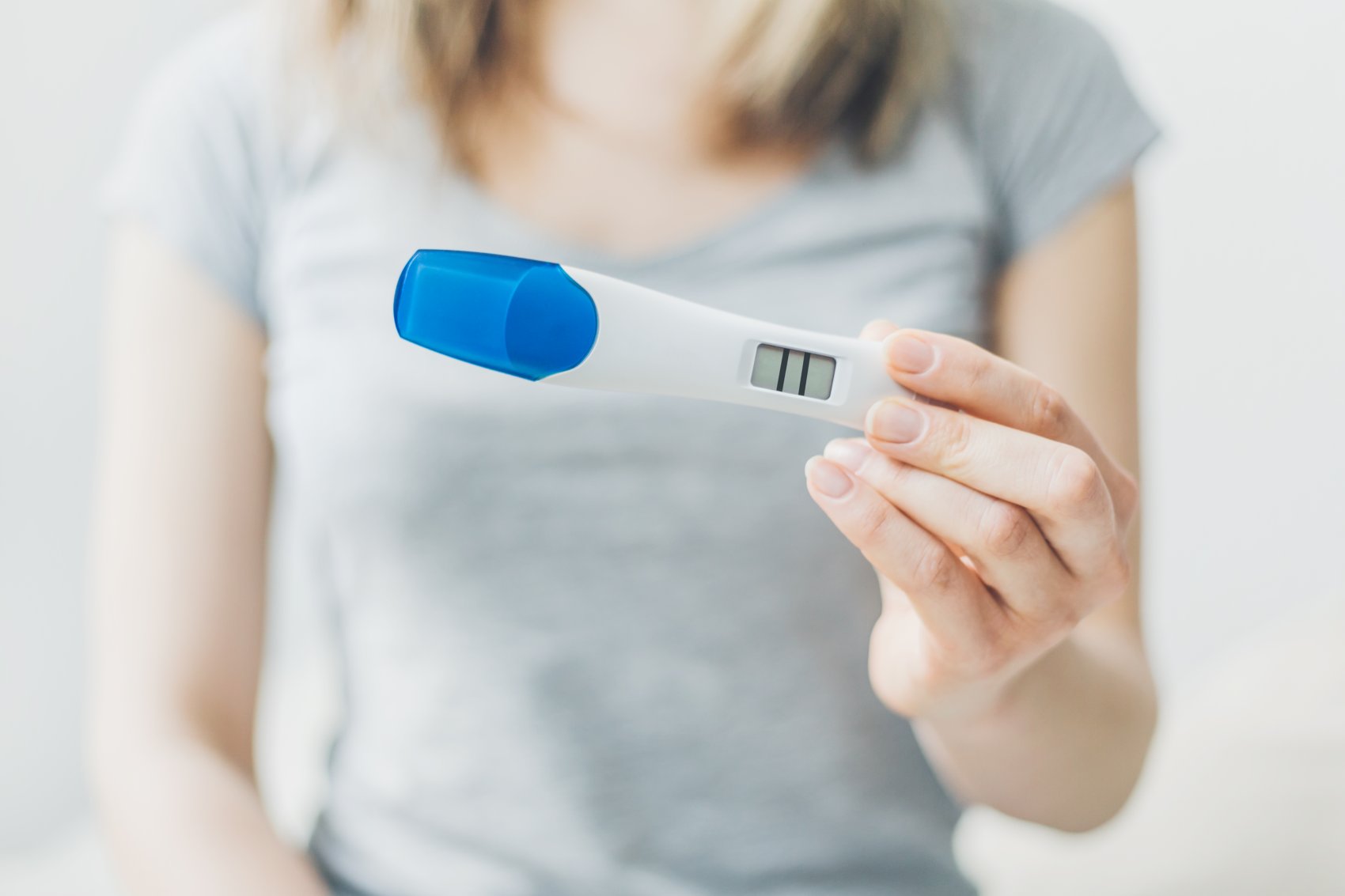Fertility cycle monitoring plays a major role in a couple’s journey to becoming pregnant. By monitoring changes within a woman’s body during the menstrual cycle, specialists can determine the best time for conception or if any reproductive system issues may be causing infertility.
With various tests and examinations at key stages of the menstrual cycle, fertility specialists can check a woman’s hormone levels and check for healthy ovarian follicles to time ovulation precisely. Cycle monitoring tests also reveal if the endometrium is properly preparing for implantation as expected.
The chances for a successful conception increase when steps are taken to verify the best timing of conception.
How Does Our Cycle Monitoring Work?
For most women, the menstrual cycle is a 28-day process. Each month around the 14th day, the body releases an egg for fertilization, which is known as ovulation. While ovulation only lasts for a 24-hour period, the egg needs to be fertilized within 12 to 24 hours before it dies. This is why cycle monitoring is crucial in the journey to becoming pregnant.
ONE Fertility offers cycle monitoring at our Kitchener-Waterloo clinic for all couples or single women who require medical assistance in pinpointing the height of ovulation or who may be having trouble becoming pregnant.
As cycle monitoring is done during the first half of the menstrual cycle, the journey begins on the first day of your period (Day 1). Upon notifying the clinic of your Day 1, you will be scheduled for blood work and a transvaginal ultrasound at the clinic on your Day 3.
The results of your Day 3 bloodwork and ultrasound create the baseline for the cycle. Your levels of Follicle Stimulating Hormone (FSH), Luteinizing Hormone (LH), and Estradiol (E2) will also be noted.
You will be scheduled for subsequent appointments at the clinic to determine how your hormone levels have changed throughout your cycle, as well as to monitor how your follicles are growing.

Are You a Good Candidate for Cycle Monitoring?
Candidates for cycle monitoring in Guelph and nearby areas will undergo a consultation with one of our fertility specialists. Cycle monitoring is a fertility service available for anyone wanting to become pregnant and for those with an unexplained infertility issue.
It is a part of our regular infertility treatments of intrauterine insemination (IUI), in vitro fertilization (IVF), and intracytoplasmic sperm injection (ICSI) therapies. Those with underlying reproductive system conditions of polycystic ovary syndrome (PCOS), endometriosis, and/or hormonal imbalances are able to use the cycle monitoring process in their fertility plan.
What to Expect During Each Cycle Monitoring Visit to the Clinic?
At ONE Fertility, cycle monitoring can be performed over several menstrual cycles as a woman’s cycle can vary from month to month. One cycle requires several clinic appointments for blood tests and ultrasounds done throughout the process.
For the first scheduled visit to the clinic on Day 3 of your menstrual cycle, the transvaginal ultrasound and blood work are performed. This establishes a baseline for hormone levels, records of existing resting follicles, and rules out any abnormalities within the uterus and ovaries, such as cysts.
Unless an issue arises from these tests, your next appointment will be scheduled between Days 10 to 12 for more blood work and an ultrasound. This allows the specialist to ensure the endometrium is thicker and a mature follicle is available for ovulation in the coming days.
For successful fertilization, the follicles should be 20-24 millimetres in diameter with compounding LH levels. Couples using artificial insemination will be instructed to take fertility medication to induce ovulation and will have a clinic appointment scheduled for the next day for the insemination. Couples who want to conceive naturally will be advised to have sexual intercourse daily over the next three days.
After the insemination or timed sexual intercourse, you will be instructed to begin taking luteal phase medications to thicken your uterine lining. You will come back to the clinic again approximately two weeks later for bloodwork and a pregnancy test to determine if the embryo has successfully implanted. It is at this stage that your level of progesterone is expected to be elevated as this hormone is responsible for assisting a successful implantation of the embryo in the endometrium.
ONE Fertility Clinic Provides Cycle Monitoring Services for Couples in the Toronto Area
ONE Fertility Kitchener Waterloo offers evidence-based treatments with individual fertility plans customized to meet the unique needs of each person. Every one of these treatments, including our cycle monitoring service, is offered with high success rates within our safe and welcoming fertility clinic.
We invite you to contact us with any questions or concerns in relation to cycle monitoring or our other fertility services.





